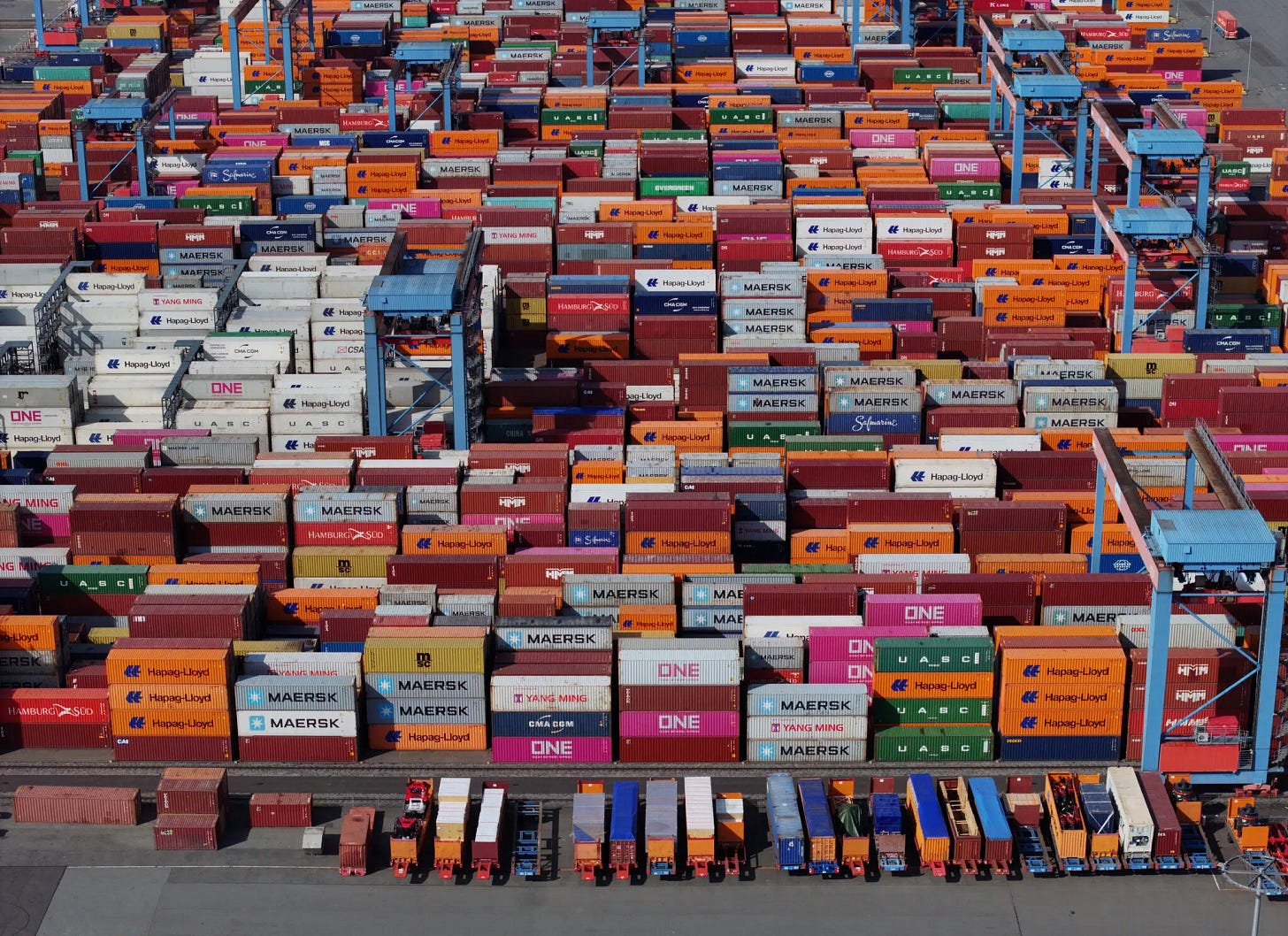Today's News: Trump Threatens New Tariffs on EU Imports, Apple
While the administration claims the tariff is a response to unfair EU trade practices and insufficient offers, European leaders argue that the demands are unreasonable and retaliatory.
Photo: Sean Gallup/Getty Images
Overview
Date: May 23–24, 2025
Topic: Trump Threatens 50% Tariff on EU Imports, Escalating U.S.-Europe Trade Conflict
Summary: President Donald Trump announced his intent to impose a 50% tariff on goods from the European Union starting June 1, citing ongoing trade imbalances, regulatory grievances, and failed negotiations. European officials denounced the threat as coercive and reiterated calls for “mutual respect” in transatlantic relations. While the administration claims the tariff is a response to unfair EU trade practices and insufficient offers, European leaders argue that the demands are unreasonable and retaliatory. Analysts suspect the move may be a negotiating tactic, but with the 90-day negotiation pause set to expire in July, tensions have deepened. The EU is preparing countermeasures exceeding $100 billion in U.S. goods, while bilateral talks remain strained over digital taxes, VAT systems, and the regulation of American tech giants.
Sources
The New York Times: Europe’s Been Negotiating by the Book, but Trump’s Tearing It Up
CNN: Trump says he’s ‘not looking for a deal’ with the EU after threatening a 50% tariff
NBC News: Trump's tariff threat risks a trade war with Europe years in the making
Fox Business: Trump threatens 25% tariff on iPhones, 50% tariff on EU goods amid trade tensions
The Washington Post: Trump threatens tariffs on Apple, European Union in trade war escalation
The Wall Street Journal: Why Trump Lashed Out at Europe Over Trade
Key Points
Trump announced a 50% tariff on EU imports, citing trade imbalances, digital and VAT taxes, and EU regulatory practices.
The tariff is scheduled to begin June 1, following a stalled negotiation period meant to resolve ongoing trade issues.
U.S. officials claim the EU has failed to provide sufficient concessions or demonstrate flexibility in trade talks.
European leaders argue the U.S. demands—such as eliminating VAT and easing tech regulations—are non-negotiable and counter to EU principles.
The EU has prepared significant retaliatory tariffs exceeding $100 billion on American goods if talks break down.
Financial markets initially dipped on the news, reflecting global concern over a renewed transatlantic trade war.
Unique Highlights
CNN reported Trump’s Oval Office comment that he is “not looking for a deal,” reinforcing the unilateral nature of the tariff move.
The New York Times detailed the EU’s two-phase retaliation plan and Trump’s push to remove European VAT systems and modify food safety laws.
Fox Business added Trump’s parallel 25% tariff threat on Apple iPhones not made in the U.S., and highlighted his push for U.S.-based manufacturing.
NBC News contextualized the move within broader geopolitical tensions, including JD Vance’s and Elon Musk’s controversial interactions with EU leaders.
The Washington Post noted inaccuracies in Trump’s cited trade deficit figures and historical revisionism about the EU’s founding purpose.
The Wall Street Journal revealed U.S. frustration over the EU’s refusal to join U.S.-led efforts to impose tariffs on Chinese industries.
Contrasting Details
CNN and The Washington Post emphasize the economic and inflationary risks of the tariff, while Fox Business portrays it as a legitimate pressure tactic tied to Trump’s “America First” manufacturing agenda.
The New York Times and NBC News describe the EU as negotiating in good faith; The Wall Street Journal reports U.S. claims that internal EU bureaucracy has paralyzed meaningful progress.
The Wall Street Journal underscores the Trump administration’s desire for EU alignment on China policy, minimally mentioned elsewhere.
Fox Business and CNN provide more details on Trump’s targeting of Apple, which is not addressed in NBC News or The New York Times.
The Washington Post is more critical of the administration's data accuracy and implications for global trade norms, whereas Fox Business focuses on domestic manufacturing incentives.
The Newsie Project uses AI to summarize, compare, and contrast the reporting of the major US and world online news sources.
This is an evolving project. Tools, approaches, and output formats will change over time. The Newsie Project does not attempt to provide a definitive capsule of any news story. While the incidence of errors in these summaries is low, and I attempt to spot-check details, AI tools can hallucinate. Please click through and read the articles for details (some may be paywalled).


